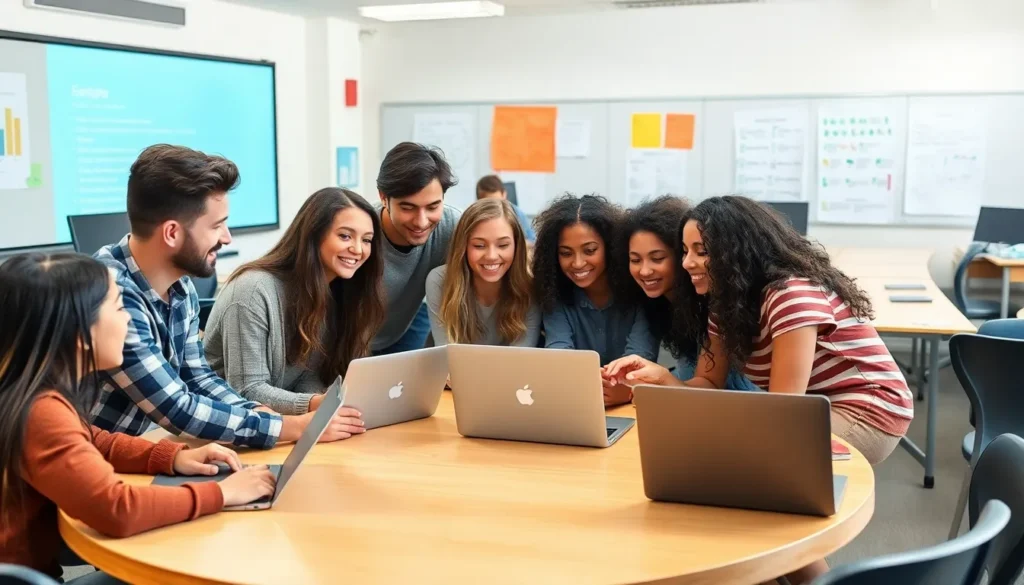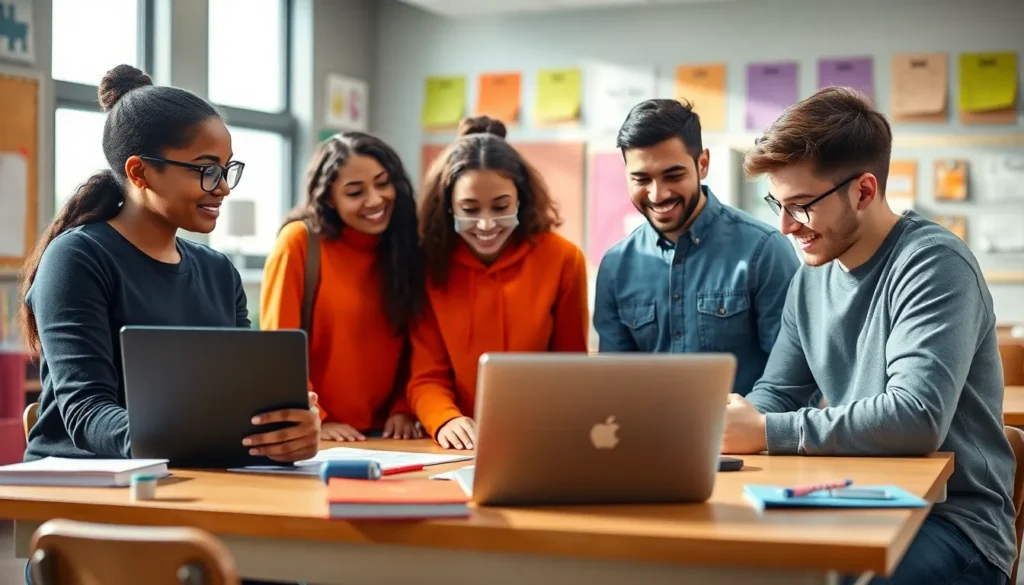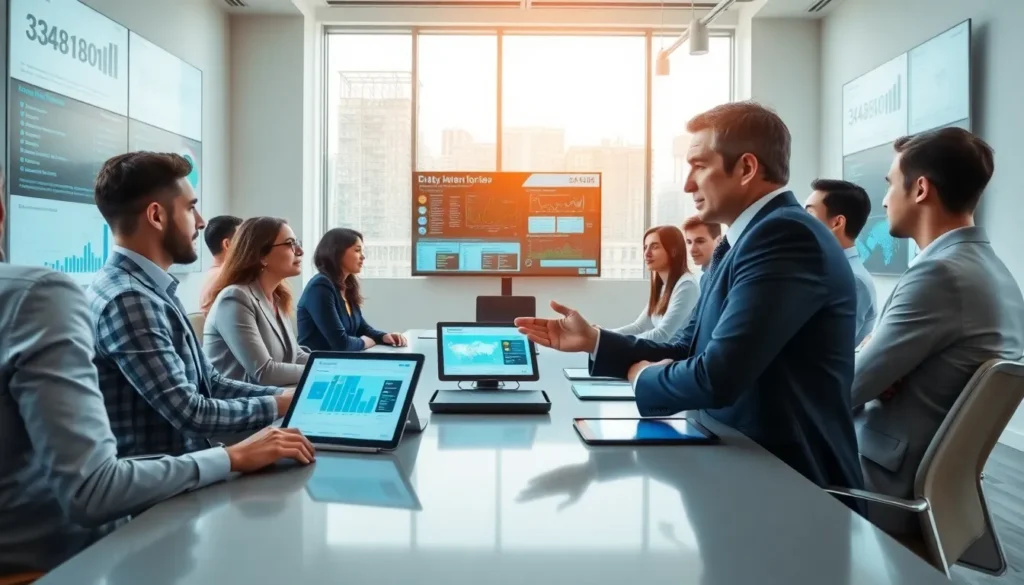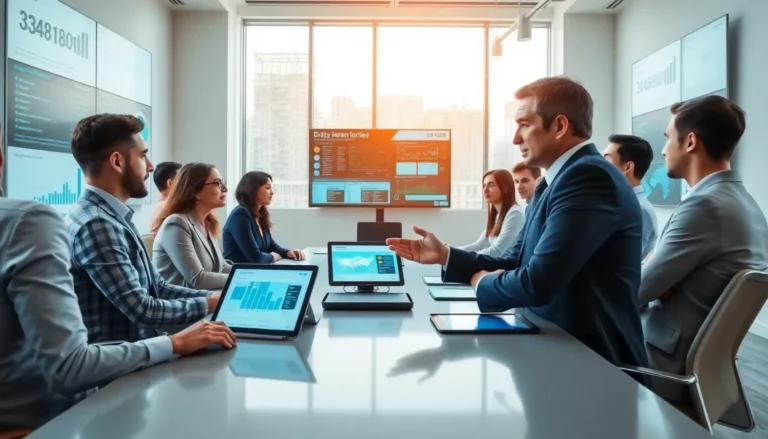Table of Contents
ToggleIn a rapidly changing world, future education planning has become more crucial than ever. As technology evolves and job markets shift, students and parents alike face the challenge of navigating educational pathways that align with tomorrow’s demands. Understanding how to effectively plan for education not only prepares individuals for future careers but also fosters lifelong learning.
By focusing on personalized learning experiences and adapting to emerging trends, future education planning empowers students to make informed choices. This proactive approach ensures they’re equipped with the skills and knowledge needed to thrive in an unpredictable landscape. As society moves forward, embracing innovative educational strategies will be key to unlocking potential and achieving success.
Overview of Future Education Planning
Future education planning plays a crucial role in preparing students and parents for the complexities of a rapidly evolving educational landscape. It emphasizes the necessity of strategic foresight to align educational choices with workforce demands.
Importance of Strategic Planning
Strategic planning serves as a foundational element for effective education management. It helps in identifying emerging trends in job markets, ensuring students acquire relevant skills. It enables the alignment of curriculum with industry requirements, facilitating internships and hands-on experiences. Additionally, strategic planning fosters collaboration between educational institutions and employers, maximizing job placement opportunities. This approach supports resilience by allowing stakeholders to adapt to shifts in technology and employment sectors.
Goals of Future Education
The goals of future education revolve around equipping students with essential skills and knowledge. They aim to encourage critical thinking and problem-solving abilities. Future education also strives to cultivate emotional intelligence and adaptability in students, preparing them for diverse career paths. Another objective includes promoting lifelong learning habits, ensuring students remain competitive in a changing workforce. Ultimately, these goals establish a framework for personalized learning experiences, enhancing each student’s unique path.
Key Trends Influencing Education

Education faces significant shifts shaped by various trends. Understanding these influences enhances future educational planning for students and educators alike.
Technological Advancements
Technological advancements redefine teaching, learning, and assessment methods. They enhance access to knowledge through online platforms, interactive tools, and virtual classrooms.
- Personalized Learning: Technology enables tailored educational experiences, allowing students to learn at their own pace through adaptive learning platforms.
- Resource Availability: Digital resources, such as e-books and educational videos, provide diverse learning materials that cater to different learning styles.
- Collaboration Tools: Online tools foster collaboration among students and educators, facilitating group projects and discussions irrespective of geographical boundaries.
- Data Analytics: Analytics tools track student progress and engagement, informing instructional strategies and improving learning outcomes.
Changes in Workforce Needs
Workforce needs evolve continuously, driven by technological innovations and market demands. Education must adapt to these changes to prepare students for success.
- Skill Emphasis: Employers prioritize skills like critical thinking, creativity, and technical proficiency due to the rise of automation and artificial intelligence.
- Career Pathways: Education increasingly focuses on career readiness, offering programs that align with in-demand roles across various industries.
- Soft Skills Development: Emotional intelligence, teamwork, and communication skills gain importance as employers seek well-rounded candidates.
- Lifelong Learning: The expectation for lifelong learning influences curriculum design, encouraging students to cultivate adaptability and ongoing skill development.
Innovative Approaches to Education
Innovative strategies play a pivotal role in reshaping educational paradigms, ensuring that learning experiences are tailored to individual needs while preparing students for future challenges.
Personalized Learning
Personalized learning adapts educational experiences to fit each student’s strengths, needs, and interests. This approach incorporates various strategies such as adaptive software and data analytics to monitor student progress. Teachers use this data to adjust lesson plans accordingly, ensuring that every student receives targeted support. Schools implementing personalized learning report increased student engagement and improved academic outcomes. For example, programs like Khan Academy enable students to learn at their own pace and receive tailored practice based on their unique performance.
Experiential Learning Opportunities
Experiential learning emphasizes hands-on experiences as a crucial component of education. Through internships, apprenticeships, and project-based learning, students gain practical skills that directly relate to their future careers. Research indicates that students who participate in experiential learning report higher levels of retention and understanding of material. Collaborations between educational institutions and industry leaders enhance these opportunities, allowing students to apply theoretical knowledge in real-world settings. Programs like dual-enrollment allow high school students to earn college credits while gaining valuable work experience, bridging the gap between academics and the workforce.
Challenges in Future Education Planning
Future education planning encounters various challenges that affect its effectiveness and implementation. Identifying and addressing these obstacles is essential for creating a responsive educational ecosystem.
Budget Constraints
Budget constraints limit educational institutions from investing in innovative programs and technology necessary for effective future planning. Reduced funding impacts curriculum development, teacher training, and infrastructure improvements. Schools may struggle to provide personalized learning experiences due to financial restrictions, hindering their ability to adapt to emerging trends. Ensuring equitable access to resources remains a significant challenge amidst these financial limitations.
Resistance to Change
Resistance to change manifests in various forms among educators, administrators, and policymakers. Many stakeholders may prefer traditional teaching methods, viewing them as more reliable compared to newer, adaptive approaches. This reluctance can hinder the implementation of personalized learning experiences and innovative curricula that align with workforce demands. Overcoming this resistance requires ongoing professional development and a cultural shift that embraces new pedagogical methods and technology.
Future education planning is essential for navigating the complexities of an ever-evolving landscape. As students and parents embrace personalized learning and innovative strategies, they position themselves for success in a competitive job market. By focusing on critical skills and fostering adaptability, educational systems can better prepare individuals for future challenges.
The collaboration between educational institutions and industry leaders plays a crucial role in bridging the gap between academics and real-world applications. While challenges exist, a proactive approach to education can create a dynamic environment that nurtures lifelong learning. Ultimately, prioritizing future education planning empowers students to thrive in a world filled with opportunities and uncertainties.








